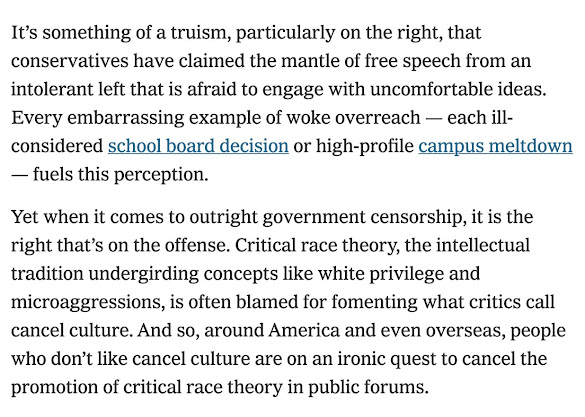This is nasty scam.
My division dean mentioned it last week and she sent out a long email notice to all department faculty members today.
Nasty --- and a bit unreal, to think about it.
At LAT, "More than 65,000 fake students applied for financial aid in wide community college scam":
California student aid official Patrick Perry was beginning a routine check of federal financial aid records a few weeks ago when he came across a mystifying number: 60,000 more aid applications from a particular group of students this year than last. They were first-time applicants to California community colleges who were older than 30, earned less than $40,000 annually and were seeking a two-year degree rather than a vocational certificate. They were spread out across the state, applying to 105 of the 116 campuses in the California Community Colleges system — with the top number at Cerritos, Pasadena, Chaffey, Merced and Antelope Valley. And their applications began surging in May through mid-August. “We were kind of scratching our heads going, ‘Did or didn’t 60,000 extra older adult students really attempt to apply to community colleges here in the last few months?’” Perry, director of policy, research and data for the California Student Aid Commission, said Tuesday. He alerted California community college officials Thursday. Around the same time, chatter emerged about abnormal enrollment patterns on a research listserv for community colleges, on which faculty were beginning to question whether some of their “students” were actually fake bot accounts. The colleges and student aid officials put their heads together and uncovered what is believed to be one of the state’s biggest financial aid scam attempts in recent history. California Community Colleges officials declined to say whether any financial aid was disbursed to fake students and said they did not know of any confirmed Cal Grant fraud, but the investigation is continuing. Perry said he thinks the attempted fraud was stymied before much, if any, aid was distributed because community college classes are just starting and campuses are now on high alert. “I can’t tell you whether any money has gone out or not, but my guess is probably not,” he said. “I think we’ve caught it.” It was unclear what financial aid may be involved in the fraud — state-funded Cal Grants, for instance, federal Pell Grants or COVID-19 emergency relief grants. California community colleges have received more than $1.6 billion in emergency COVID-19 relief for low-income students. In addition, the fake applications are roiling the ability of college officials to determine true student enrollment numbers at a time of declining community college attendance and major efforts to recruit students and offer them financial and emergency pandemic aid to help them continue with higher education goals. Many professors are crestfallen trying to assess whether they have a class of students or bots. Since last week, Perry said, the number of suspected fake financial aid applications has surpassed 65,000, and the problem appears confined to state community colleges. No irregular patterns were detected with the University of California or California State University. The U.S. Department of Education’s Office of Inspector General confirmed it was investigating but declined to comment further because the inquiry is ongoing. But the financial aid commission and community colleges have found similar red flags for both admission and financial aid. Applications were missing a phone contact or had the same phone number on multiple applications. Numerous applications used an Outlook.com email address, listed student ages as old as 90 and repeated addresses — most to a vacant house. “We were looking at the financial aid and they were looking at applications for enrollment and we finally put the two together,” Perry said. “The two just matched up and at that point we went, ‘Yeah, this is fraudulent.’” The community college system is beefing up internal reporting and security measures after finding that 20% of recent traffic on its main portal for online applications was “malicious and bot-related,” according to a memo issued Monday by Valerie Lundy-Wagner, interim vice chancellor of digital innovation and infrastructure. Nearly three-quarters of that traffic was caught by new software called Imperva Advanced Bot Detection, which was installed in July, and the matter remained of “grave concern,” Lundy-Wagner said. “I’m certainly alarmed,” said California Community Colleges Chancellor Eloy Ortiz Oakley, who is on temporary leave working for the Biden administration. “There’s lots of unscrupulous players right now trying to access and exploit benefits, not unlike what’s happened with unemployment insurance and any number of other benefits that have been made available recently because of the pandemic. “But I’m confident that the colleges have been able to identify the activity and are working to mitigate the risk to campuses,” he said.




